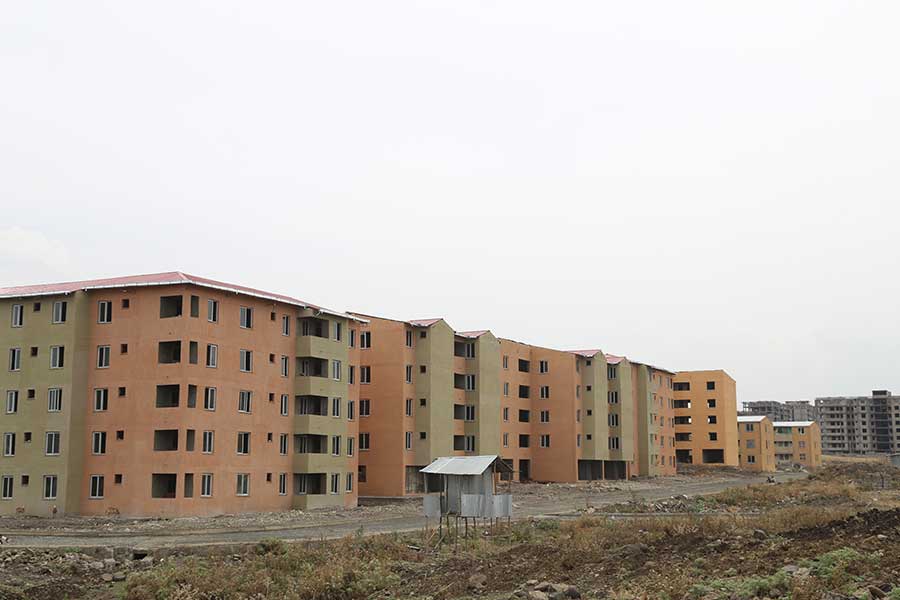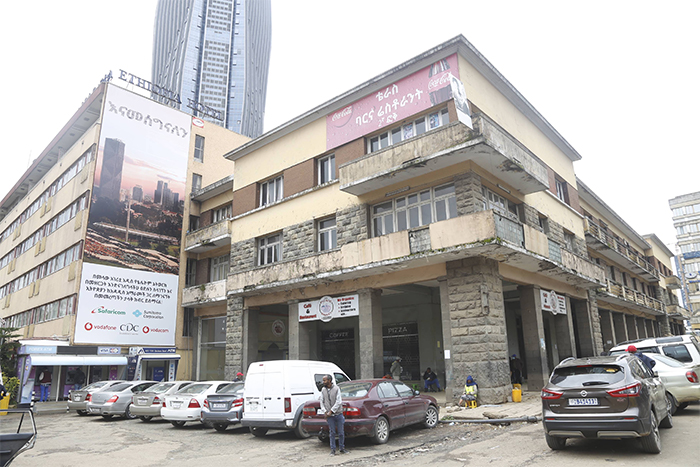
The arrival of a Land Cruiser in the centre of the sleepy hamlet of Aleyu Amba in Northern Shoa stirred quite a commotion as children scramble from a nearby market, gleefully gawking and staring at the occupants.
A lone passenger, an American of Ethiopian origin, emerges from the back seat and tries to make small talk with the growing crowd. He inquires if anyone would know about his grandfather, Dejazmach Ayalneh Belay, the last patriarch of an old prominent family. His grandfather had once owned, administered and ruled over a large Gultin Aleyu Amba.
The Gultwas a land grant given to one of his ancestors by the King of Shoa as a reward for loyal services - a regular practice during the imperial time in the north. Ayalneh Belay, an absentee landlord residing in Addis Abeba, annually collects the taxes and rents from tenants on the Gultthrough his overseer, which makes up a small part of his wealth.
By the time the final days of the empire approached in 1974, Ayalneh Belay has risen to prominence by creating his own independent wealth that depends less on the income of his Gult but more on his investments in urban properties, business ventures and the purchase and cultivation of productive land in the south.
Today, no one seems to know or to have ever heard of the ancient patriarch. Eventually, the visitor moves to a small establishment at the edge of the road tailed by the crowd and settles for a breakfast.
After a while, an aged and gaunt figure of a woman leaning on a twisted cane is pushed toward the front of the gathering and is presented to the guest.
“The overseer of the Gultwas my great-grandfather, and the great house and settlement were there below the northern escarpments,” she says.
She points with her cane to the general direction of a terraced plateau that sits below a rocky bluff at the edge of town.
“There is no one left now that knows of the old farmstead. It has been overrun by new settlers and collective farms. Some of the old folks kept small plots but are dying out and have already moved away or have settled to lives of squalor like me.”
She shuffles and takes a seat close to the guest. She peers into his eyes and seems to admire the designer shirt, pants and shoes that the Ethiopian-American is adorned with and is delighted when he trains a camera that dangles from his neck at her and takes pictures.
Today, the old land tenure system in Ethiopia has been dismantled and replaced by a hodgepodge of administrative and governmental directives that have left the fate of our land resources in the hands of government officials.
In the imperial system of land tenure, particularly in the north, “peasants enjoyed only usufructuary rights over the land, but in the south, where land measurement and property registration for tax purposes was introduced, private ownership and land sales [flourished, even between landowners and tenants],” reports Daniel W.GebrieL, et. al in ‘History of Tenure System In Ethiopia.’
Private ownership of urban land was decreed in 1907, allowing Ethiopians and non-nationals to purchase and own private property, and that right was further ratified by the 1931 and 1955 Constitutions and codified by the 1960 Civil Code.
In effect, private land ownership in Ethiopia coexisted with state ownership much as it does today in the developed world.
This is the budding change of private property ownership and investment culture - the trajectory of a meaningful path to development in Ethiopia - that the Derguescuttled in its gobbledygook proclamation in the name of “Land to the Tiller.”
With the single stroke of a 1975 declaration, the Derguetransferred to state ownership “all rural land privately owned by landlords, peasants, organizations, [and] the church to public ownership and prohibited all forms of private ownership,” writes W.Gebriel.
Despite its rhetoric of Land to the Tiller, the law only supplied “usufruct rights over the land to peasants prohibiting any transfer, sale, exchange, succession, mortgage, antichresis, lease or otherwise with some exceptions made for inheritance,” remarked W/Gebriel.
When the EPRDF came to power after ousting the Derguein 1991, it adopted the same system and inserted the notion of “investor” culture. It opened up large tracks of land by leasing it for free to non-nationals who enjoyed tax holidays and generous loan terms from state banks in the name of foriegn investment. It left the rural and urban land in the hands of officials who to this day maintain absolute control over all land in Ethiopia.
The current land tenure system is defective, because it creates unnatural insecurities as to the true ownership of land by citizens. Since all land rights are vested in the state, insecurities arise because an official sitting in a nondescript office can decree the fate of a piece of land across Ethiopia.
Insecurities arise because a government official can decree the legality and tenure of a piece of land and evict tenants from their homestead without obtaining any judicial order from a competent court. This fact needs no more example than the recent demolition of homes in the town of Legetafo-Legedadi.
In light of all the ongoing malaise, disorder, malfeasance and discontent of citizens concerning how our land resources are managed, it begs the question as to why - for whose benefit - did Ayalneh Belay lose all his properties and investments?
Why did Ethiopians go through 40 years of convulsions of the Red Terror, wars, abuse of human rights, displacements, landlessness and poverty to find themselves in the same socio-economic quagmire and insecurities that indicted the ancien régime? In a true Leninist flourish, what is to be done now?
PUBLISHED ON
Mar 09,2019 [ VOL
19 , NO
984]


My Opinion | Nov 23,2024

View From Arada | Mar 23,2019

Radar | Mar 16,2024

Fortune News | Oct 30,2022

Commentaries | May 20,2023

Fortune News | Sep 06,2020

My Opinion | Apr 30,2021

Fortune News | Jul 18,2021

Editorial | Aug 06,2022

Fortune News | Jun 13,2025

Dec 22 , 2024 . By TIZITA SHEWAFERAW
Charged with transforming colossal state-owned enterprises into modern and competitiv...

Aug 18 , 2024 . By AKSAH ITALO
Although predictable Yonas Zerihun's job in the ride-hailing service is not immune to...

Jul 28 , 2024 . By TIZITA SHEWAFERAW
Unhabitual, perhaps too many, Samuel Gebreyohannes, 38, used to occasionally enjoy a couple of beers at breakfast. However, he recently swit...

Jul 13 , 2024 . By AKSAH ITALO
Investors who rely on tractors, trucks, and field vehicles for commuting, transporting commodities, and f...

Jun 28 , 2025
Meseret Damtie, the assertive auditor general, has never been shy about naming names...

Jun 21 , 2025
A well-worn adage says, “Budget is not destiny, but it is direction.” Examining t...

Jun 14 , 2025
Yet again, the Horn of Africa is bracing for trouble. A region already frayed by wars...

Jun 7 , 2025
Few promises shine brighter in Addis Abeba than the pledge of a roof for every family...